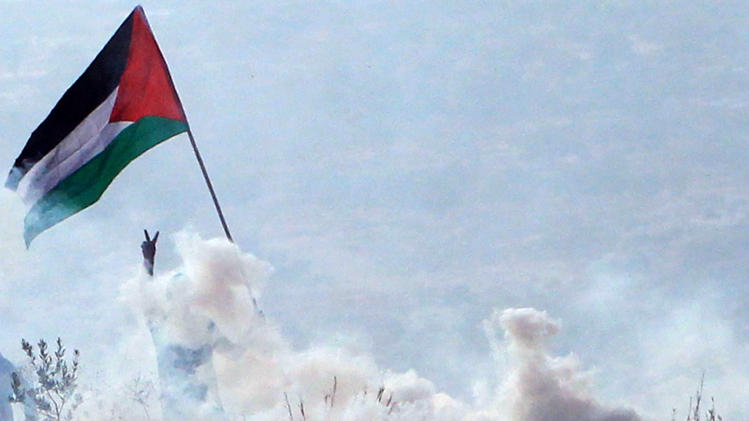The skies over Gaza remained calm Wednesday as a long-term ceasefire took hold, ending the deadliest violence in a decade, with Israel and Hamas both claiming ‘victory’ in the 50-day war.
Millions in and around the war-torn enclave enjoyed a welcome night of peace during which there were no strikes on Gaza, nor Palestinian rockets fired at Israel, the Israeli army said.
“We were able to sleep!” said a Gazan man, Alaa al-Jaro. “We had the best sleep ever after the Israeli aggression ended.”
“A ceasefire has been signed, and this time it should last, not like before,” said 16-year-old Raed Alaa Habeb from Gaza City’s battered Shejaiya neighbourhood.
“We trust in this ceasefire.”
The agreement, which went into force at 1600 GMT Tuesday, saw the warring sides agree to a “permanent” ceasefire which Israel said would not be limited by time, in a move hailed by Washington, the United Nations and top world diplomats.
Both Israel and the Hamas movement, the de facto authority in Gaza, hailed the ceasefire as a victory.
But commentators took a more realistic perspective. “A draw” was the headline in Maariv newspaper.
And experts said the two sides had agreed to halt their fire out of exhaustion after seven weeks of fighting which has claimed the lives of 2,143 Palestinians and 70 on the Israeli side.
“After 50 days of fighting, the two sides were exhausted so that’s why they reached a ceasefire,” Middle East expert Eyal Zisser told AFP.
Politically, Hamas had “not achieved anything” but to really weaken it, Israel would have to resume peace talks with the Western-backed Palestinian Authority, he said.
Under the deal, Israel will ease restrictions on the entry of goods, humanitarian aid and construction materials into Gaza, and it expanded the offshore area open to Palestinian fishermen to six nautical miles.
But talks on crunch issues such as Hamas’s demands for a port and an airport and the release of prisoners, as well as Israel’s calls to disarm rebel groups, will be delayed until the negotiators return to Cairo within the coming month.
Even ahead of the Cairo talks, Israel staked out a firm stance on how it will approach the upcoming negotiations.
“There will be no port, no airport and no entry of materials that could be used to produce rockets or build tunnels,” said deputy foreign minister Tzahi HaNegbi, a close associate of Prime Minister Benjamin Netanyahu.
“That will be our position which we will present at the negotiations in Cairo,” he told public radio.
Despite ecstatic celebrations late into Tuesday night in Gaza, Israel’s reaction to the truce was muted, although officials were quick to portray the agreement as a resounding success.
“For years Hamas has prepared a number of very big operations for a war against Israel, involving rockets, tunnels and terror attacks and all of these met a crushing response from the IDF (army),” said Netanyahu’s spokesman Liran Dan.
“Hamas started this (war) with a clear declaration that it wouldn’t stop without an end to the blockade, a port and an airport,” he told army radio.
“It set out with a very clear objective and didn’t get anything that it wanted.”
But Hamas also claimed victory, saying it had caused Israel heavy losses, in a reference to the 64 soldiers killed in the fighting in what was the Jewish state’s biggest military loss since 2006.
“The Palestinian resistance achieved a military victory before the war was over because it stood firm in the face of the arsenal of Zionist terrorism,” Hamas said in a statement.
On the ground in Gaza, the streets quickly took on some semblance of normalcy with people going out shopping and heading back to work, as workers sought to repair damage to electrical power lines and the phone network.
Fishermen were also out at sea after Israel expanded the fishing zone, in a measure which came into force just before dawn, at 0200 GMT.
One of the main clauses of Tuesday’s agreement was opening the crossings to allow in goods, humanitarian aid, medical supplies and materials to repair the water, electricity and mobile phone networks.
But it was not immediately clear when those changes would go into effect.
The Palestinian liaison official said the restrictions at Erez crossing in the north and Kerem Shalom commercial crossing in the south had returned to what they were before the crisis.
“We will have a meeting today with Israel to discuss the new procedures but the only thing in place so far is the new fishing limit while crossings have returned to the status quo ante,” he told AFP. SAPA






 WhatsApp us
WhatsApp us 

